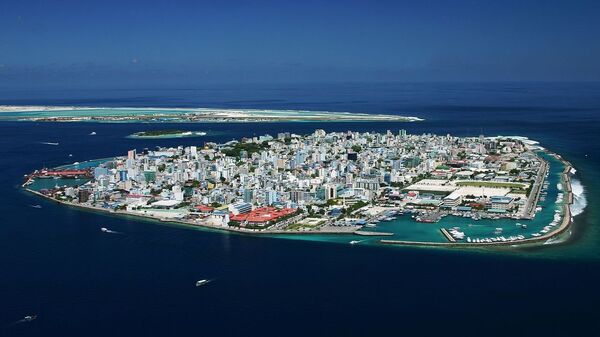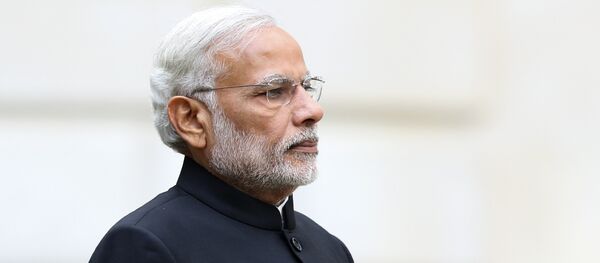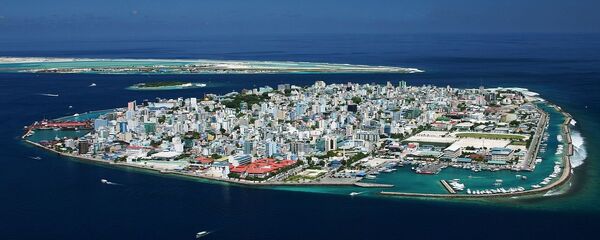New Delhi (Sputnik) — India has defined the victory of the opposition, led by Ibrahim Mohamed Solih, in the Maldives' general election as a triumph of democratic forces.
"This election marks not only the triumph of democratic forces in the Maldives but also reflects the firm commitment to the values of democracy and the rule of law. In keeping with our 'neighbourhood first' policy, India looks forward to working closely with the Maldives in further deepening our partnership," India's External Affairs Ministry has said.
— Raveesh Kumar (@MEAIndia) September 24, 2018
— All India Radio News (@airnewsalerts) September 25, 2018
Sputnik talked to former Indian diplomat Vivek Katju on the Maldives' election results and its implications for India. Ambassador Vivek Katju has served as India's ambassador to Afghanistan, Myanmar and Thailand and served in Indian Missions in Cairo, Abu Dhabi, Washington DC, Suva and Kuala Lumpur.
Sputnik: How will the election result in the Maldives impact India?
Vivek Katju: The ouster of Yameen is basically good news for India as there will be a re-calibration of ties with India, as the previous tilt towards China will be corrected. But it will be a time taking process.
Vivek Katju: Yameen has given a lot of trouble to India in the past. Let's be careful, as in the coming months, Yameen will not sit idle and is likely to create troubles. One of the foremost perquisites is the opposition unity.
This is huge opposition and there is likely to be differences in the power-sharing. Therefore, much depends upon the opposition unity as far as the transfer of power is concerned. If opposition remains united, then Yameen will find it hard to play his tricks. We have to wait till 17 November, when Yameen transfers power to Solih.
Sputnik: What should be India's policy towards our neighbors, particularly, in the case of the Maldives?
Vivek Katju: Now it's the right time that India should draw the red lines for a neighborhood — what to do and what not to do. We have to think strategically and define a clear neighborhood policy. Quite clearly, this neighborhood policy cannot be ham-handed, it cannot be framed disregarding the normal aspirations of our neighbors.
The policy should put India's security interests in a manner that could easily be understood by everyone.
We should not take our neighbors for granted, as we have done. We have to clearly convey our aims and objectives to them. But in the case of the Maldives, we have to be very cautious. We should not intervene in the personal equation of their leaders.
It's better to allow local equations to settle by themselves and we should not directly and aggressively intervene in the domestic process of the Maldives.
The views and opinion expressed by the speaker in this article are those of the speaker and do not necessarily reflect the position of Sputnik.






